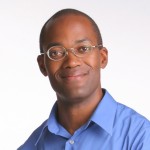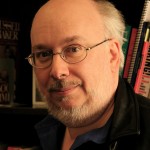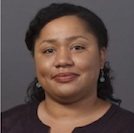#WhatBlackPantherMeansToMe – Trojan ties, expert answers
Face front, true believers! Marvel’s “Black Panther” has shattered pre-sale ticket records, trended on Twitter through the #WhatBlackPantherMeansToMe hashtag, and won critical raves that position it as perhaps not only the most inventive and radical comic book film of all time, but the best as well.
The talent behind this cinematic game changer also has strong ties to USC, with both director Ryan Coogler and Marvel Studios president Kevin Feige once calling the USC School of Cinematic Arts their home.
USC experts can discuss how this new film has the power to not only change the movie industry but our notions of identity as well, redefining that most fundamental of questions: What is a hero anyway?
Excelsior!
Contact: USC News at (213) 740-2215 or uscnews@usc.edu
 More than a comic book hero
More than a comic book hero
“The Marvel Cinematic Universe has been turning out movies for almost a decade now. However, the excitement at the release of the first film in the franchise to focus on a black superhero and also star a primarily black cast is palpable. Black Panther will attract an audience that extends way beyond the realm of the traditional Marvel franchise fan. The cultural impact on the world market will be tremendous.
“Young black children can envision themselves as never before.”
Christine Acham can discuss the cultural moment for and interest in Black Panther and how it fits into the history and culture of African-American film. She is an associate professor of the practice of cinematic arts at the USC School of Cinematic Arts.
Contact: (213) 743‑3334 or cacham@cinema.usc.edu
If they can do it, why not me?
“As a scientist who cares about inspiring more people — including underrepresented minorities and women — to engage with science, I think that if a significant portion of this scientific landscape appears in ‘Black Panther’ it could amplify the movie’s cultural impact.
“Vast audiences will see black heroes of both genders using their scientific ability to solve problems and make their way in the world, at an unrivaled level. Research has shown that such representation can have a positive effect on the interests, outlook and career trajectories of viewers.
“Improving science education for all is a core endeavor in a nation’s competitiveness and overall health, but outcomes are limited if people aren’t inspired to take an interest in science in the first place. There simply are not enough images of black scientists — male or female — in our media and entertainment to help inspire. Many people from underrepresented groups end up genuinely believing that scientific investigation is not a career path open to them.” (Excerpted from The Conversation)
Clifford Johnson can discuss how science and advanced technology, and scientists themselves, are presented in “Black Panther.” He has served as a science consultant to the two Marvel Comic Universe films that bookend “Black Panther” (“Thor: Ragnarok” and “Avengers: Infinity War”), as well as critically acclaimed television shows like National Geographic’s “Genius.” His latest book, “The Dialogues,” presents the human inquiry into our greatest scientific mysteries in the original superhero medium, the comic book/graphic novel. He is a professor of physics and astronomy at the USC Dornsife College of Letters, Arts and Sciences.
Contact: johnson1@usc.edu
A hero can be anyone
“From the start, superheroes have been figures of the civic imagination, offering fantasies of social transformation. Superman’s original mission was to be ‘a champion of the oppressed,’ only later fighting for ‘truth, justice, and the American way.’
“The figure of the Black Panther was one of Marvel’s responses to the turmoil of the 1960s, with the character emerging only a few months before the political organization of the same name. Today’s Black Panther comics are written by Ta-Nehisi Coates, a major African-American social critic, who has suggested that the character offered him an empowerment fantasy when he was a child.
“Our research shows activists in the U.S. and around the world taking up superheroes as icons for protest and as prods for rethinking social change. In this context, the superhero genre has become a core battleground in struggles for inclusion and diversity in American popular culture, as an American Muslim becomes Ms. Marvel, as Wonder Woman and Black Panther reach the big screen, and as Luke Cage and Jessica Jones go streaming.
“The urgency of these struggles accounts for why advanced tickets for Black Panther are selling out at a record rate.”
Henry Jenkins is the Provost’s Professor of Communication, Journalism, Cinematic Arts, and Education at USC. He is also chief adviser to the Annenberg Innovation Lab at USC, where he helps inform research initiatives in transmedia branding, learning, and storytelling. His students are also producing a multimedia project on the phenomenon of Marvel’s Black Panther. To learn more about this and his other work, please visit “Confessions of an Aca-Fan” and The Civic Imagination Project.
Contact: (213) 740-9727 or hjenkins@usc.edu
A cultural fashion statement
“The film itself has garnered interest around clothing practices as an articulation of blackness in particular, and shared identity among African descended peoples from all over the world.
“As evidenced by publicity for special screening events, early reviews, and social media buzz, large numbers of black organizations, affinity groups, friends and families plan to watch the film together and plan to dress for the occasion in outfits inspired by and in celebration of the African diaspora.
“Black style, fashion and dress play a role in countering the problematic representations of Africa in popular culture and media. This is all the more important in today’s society, marred by growing racial tensions.”
Kimberly McNair can discuss how the Black Panther character is reshaping African American identity and culture. Her research examines how sartorial practices and new media formats have changed African-American culture from the civil rights and Black Power generation to today’s hip-hop and millennial generations. She is a postdoctoral scholar working with Nayan Shah, professor of American Studies and ethnicity and history at the USC Dornsife College of Letters, Arts and Sciences.
Contact: mcnairk@usc.edu



